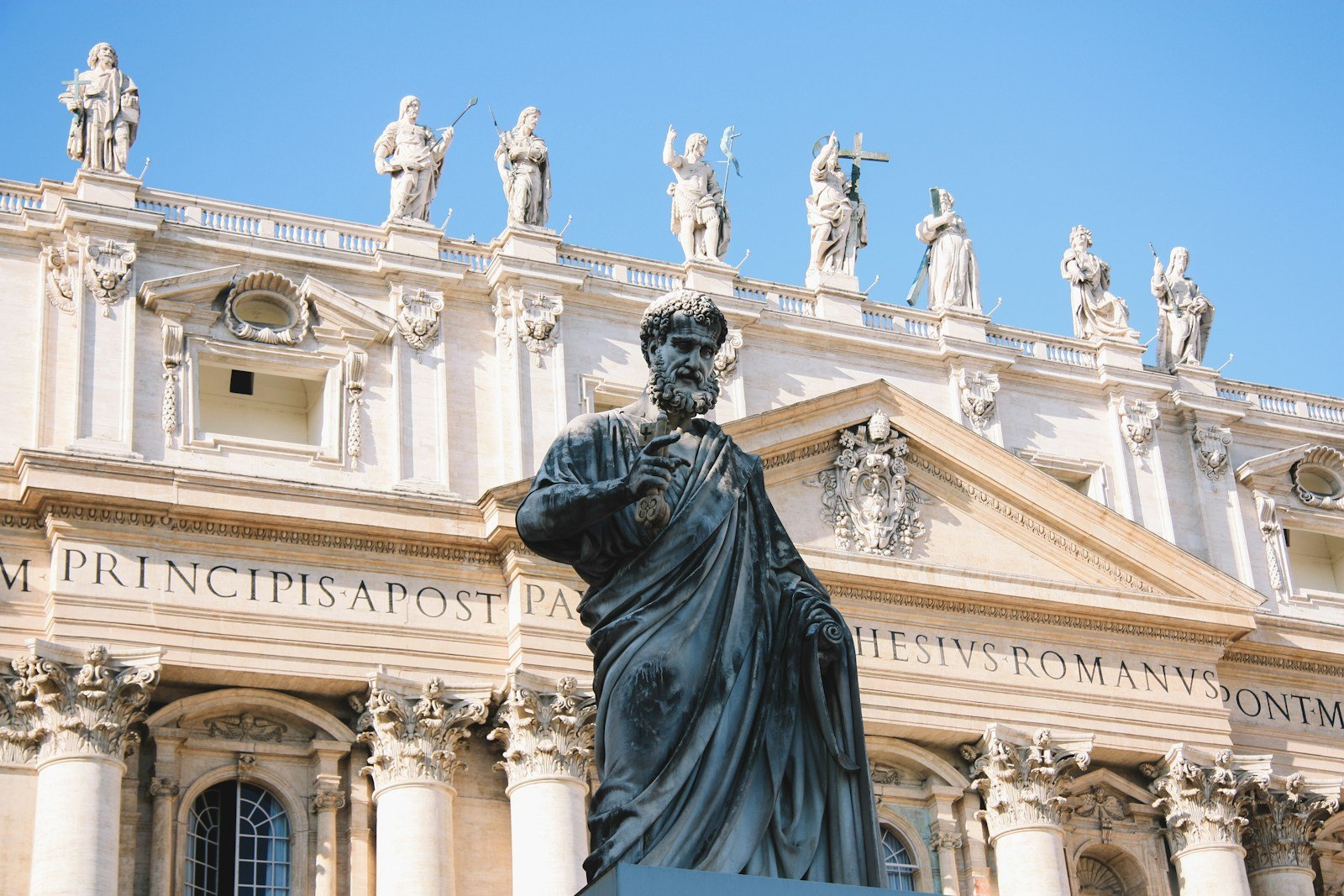In the Bible, we read about how Jesus forgave His disciples, including Peter, who denied knowing Him, but He did not extend the same forgiveness to Judas, who betrayed Him. This raises the question, why did Jesus forgive Peter and not Judas?
To understand this, we need to examine the dynamics of their relationships with Jesus and the circumstances surrounding their actions. Through this exploration, we can gain a deeper understanding of forgiveness in Christianity and the spiritual lessons we can learn from these biblical narratives.
Key Takeaways:
- Jesus forgave Peter for denying Him, but He did not forgive Judas for betraying Him.
- The relationship between Jesus and His disciples, particularly Peter, played a significant role in His forgiveness.
- Judas’ betrayal had severe consequences and implications for his relationship with Jesus.
- Peter’s denial of Jesus was a significant event that impacted their relationship and revealed his human nature.
- These biblical narratives teach us lessons about the complexities of human relationships, forgiveness, and redemption in Christianity.
Table of Contents
The Relationship Between Jesus and Peter
Jesus and Peter had a deep bond that began when Peter became one of Jesus’ disciples. As a fisherman, Peter was hardworking and loyal, and Jesus recognized these qualities in him. Peter became a close friend and confidant of Jesus, traveling with him and witnessing his miracles and teachings.
The relationship between Jesus and Peter was marked by love, but also by Peter’s imperfections. Despite his devotion to Jesus, Peter struggled with doubt and fear, as evidenced by his denial of Jesus before his crucifixion.
Jesus’ forgiveness towards Peter is significant in Christianity, demonstrating the power of spiritual forgiveness and redemption. Despite Peter’s flaws and mistakes, Jesus continued to love and support him, offering him a path to redemption and forgiveness.
This understanding of forgiveness is a cornerstone of Christian teachings and highlights the importance of forgiveness in human relationships.
The Betrayal of Judas
In examining the betrayal of Judas, it is important to understand the motives behind his actions. While the Bible does not provide a clear answer, scholars have suggested that greed may have been a factor in Judas’ decision to betray Jesus. Furthermore, the consequences of his actions were severe, as Jesus was subsequently arrested, tried, and sentenced to death.
The implications of Judas’ betrayal on his relationship with Jesus were significant. It is believed that Judas’ betrayal was a complete betrayal of trust, and that Jesus’ decision to not forgive him reflects the severity of this violation. As a result, Judas has become a symbol of one who betrays others, and his name has become synonymous with betrayal.
Understanding Judas’ actions and the resulting consequences can shed light on the significance of forgiveness in Christianity. While Jesus forgave Peter for his denials, he did not extend the same forgiveness to Judas for his betrayal. This differentiation highlights the complexities of human relationships and the importance of true remorse and repentance in receiving spiritual forgiveness.
Peter’s Denial of Jesus
Peter, one of the most prominent disciples of Jesus, is known for his significant role in the spread of Christianity. But before the ascension of Jesus, the gospel accounts portray Peter denying Jesus three times. This denial happened during Jesus’ trial and crucifixion, which led to Peter’s guilt-ridden conscience and remorseful behavior.
According to the Bible, Jesus predicted Peter’s denial, which Peter vehemently denied. However, as the events unfolded, Peter felt overwhelmed with fear, leading him to deny any connection to Jesus. Peter’s denial was not only a personal failure but also affected his relationship with Jesus. The gospel accounts describe how Jesus predicted the denial and how Peter reacted to the prophecy. He was devastated by his actions and the impact they had on the relationship with his master.
The significance of Peter’s denial in the wider context of Christianity has been a matter of debate for centuries. Some scholars believe that it shows the human struggle to remain faithful under intense pressure, while others consider it to be a prophecy about the future of Christianity.
Despite Peter’s betrayal, Jesus forgave him and even assigned him the task of shepherding the flock, signifying his trust and confidence in him. This act of forgiveness is a testament to the importance of forgiveness in Christianity, highlighting the fact that even those closest to Jesus could still betray him, reinforcing the power of forgiveness for even the most egregious offenses.
Overall, exploring Peter’s denial and Jesus’ forgiveness towards him helps us understand the complexities of human interactions, emphasizing the salience of forgiveness in Christian teachings.
Lessons on Forgiveness and Redemption
The stories of Peter’s denial and Judas’ betrayal offer valuable lessons on forgiveness and redemption that remain relevant in today’s world. Throughout the Bible, forgiveness is seen as an essential aspect of spiritual growth and renewal. In Christianity, forgiveness holds a significant place, and it is believed that it paves the way for redemption and salvation.
Jesus’ Forgiveness towards Peter underscores the importance of acknowledging our mistakes and seeking forgiveness. Even after denying him three times, Peter humbly accepted the rebuke and sought Jesus’ forgiveness, demonstrating the power of contrition and repentance.
On the other hand, Judas’ Betrayal highlights how the absence of forgiveness and the inability to confront betrayal can lead to devastating consequences. In Judas’ case, his profound guilt and despair led him to take his life, showcasing how a lack of redemption and forgiveness can have tragic outcomes.
The Significance of Forgiveness in the Bible cannot be overstated. It is seen as a critical condition for receiving salvation and experiencing spiritual cleansing. As Jesus said, “But if you do not forgive others their sins, your Father will not forgive your sins”(Matthew 6:15). This notion highlights the power and importance of forgiveness to one’s spiritual and emotional health.
In summary, the stories of Peter and Judas provide profound insights into spiritual forgiveness and redemption. They remind us that forgiveness is essential in overcoming our human weaknesses and experiencing a renewed relationship with God. These narratives offer hope and healing to all those seeking to live a life of faith and compassion.
Conclusion
Through exploring the contrasting forgiveness received by Peter and Judas, we gain a deeper understanding of the complexities of human relationships and the power of forgiveness. While Jesus forgave Peter for his denial, he did not extend the same forgiveness to Judas for his betrayal. The differing circumstances of their actions, their relationship with Jesus, and their reactions following their actions help shed light on the reasons for this difference in forgiveness.
Jesus’ forgiveness towards Peter and the absence of forgiveness towards Judas carry profound spiritual lessons. Forgiveness and redemption are central themes in Christianity, and these narratives highlight their significance. The stories of Peter and Judas remind us that we are all capable of making mistakes and betraying those we love, but there is always a path to forgiveness and redemption.
As we reflect on these powerful teachings, we are reminded of the importance of forgiveness in our relationships and our spiritual journey. Forgiveness is not always easy, but it is essential to our growth and well-being. Through forgiveness, we can find healing, reconciliation, and a deeper connection with those around us and with our faith.
FAQ
Why did Jesus forgive Peter and not Judas?
Jesus’ forgiveness of Peter and his withholding of forgiveness from Judas can be understood through the biblical accounts of their actions and relationship with Jesus. While Peter denied Jesus three times, he later expressed remorse and repented, demonstrating a genuine change of heart. On the other hand, Judas betrayed Jesus to the authorities for thirty pieces of silver, showing no signs of repentance. Jesus’ forgiveness is conditional upon repentance and a sincere desire for redemption.
What was the relationship between Jesus and Peter?
Jesus and Peter had a close bond. Peter was one of Jesus’ disciples and one of the twelve apostles. He had a prominent role among the disciples and played a key part in Jesus’ ministry. Jesus saw great potential in Peter and even renamed him “Rock” or “Cephas,” indicating his significance within the early Christian community. This deep friendship and trust between Jesus and Peter set the stage for Jesus’ forgiveness of Peter’s denial.
What led to Judas betraying Jesus?
Judas betrayed Jesus out of a desire for personal gain. He made a deal with the chief priests and accepted thirty pieces of silver to hand over Jesus to them. While the motives behind Judas’ betrayal are not explicitly mentioned in the Bible, some scholars speculate that he may have been disillusioned with Jesus’ message and disappointed with the direction his ministry was taking. Judas’ actions ultimately led to Jesus’ arrest, trial, and crucifixion.
Why did Peter deny Jesus?
Peter denied Jesus three times out of fear and self-preservation. After Jesus’ arrest, Peter was recognized by several individuals as a follower of Jesus. Fearing for his own safety, Peter denied any association with Jesus. This denial took place as fulfillment of Jesus’ prediction that Peter would deny him three times before the rooster crowed. Peter’s denial came from a place of weakness and fear, but he later deeply regretted his actions.
What are the spiritual lessons from Jesus’ forgiveness of Peter and not Judas?
The forgiveness extended to Peter and the withholding of forgiveness from Judas highlight important spiritual lessons. It emphasizes the significance of repentance and genuine remorse for one’s actions. Jesus’ forgiveness demonstrates the redemptive power of grace and the possibility of transformation through sincere repentance. It also showcases the complexities of human relationships and the need for forgiveness and reconciliation in the Christian faith.

Rockin’ the faith, one verse at a time!
Growing up, the Bible’s stories deeply impacted me. Now, with over 15 years of preaching experience, I blend timeless teachings with modern technology, making them relevant for today’s world.
Bible Hub Verse is my platform to share historical insights and thought-provoking articles, exploring both familiar and uncommon Christian topics. My passion is building a welcoming online space for everyone to learn, grow in their faith, and discover the Bible’s enduring message.
Join the journey!
God bless you.






